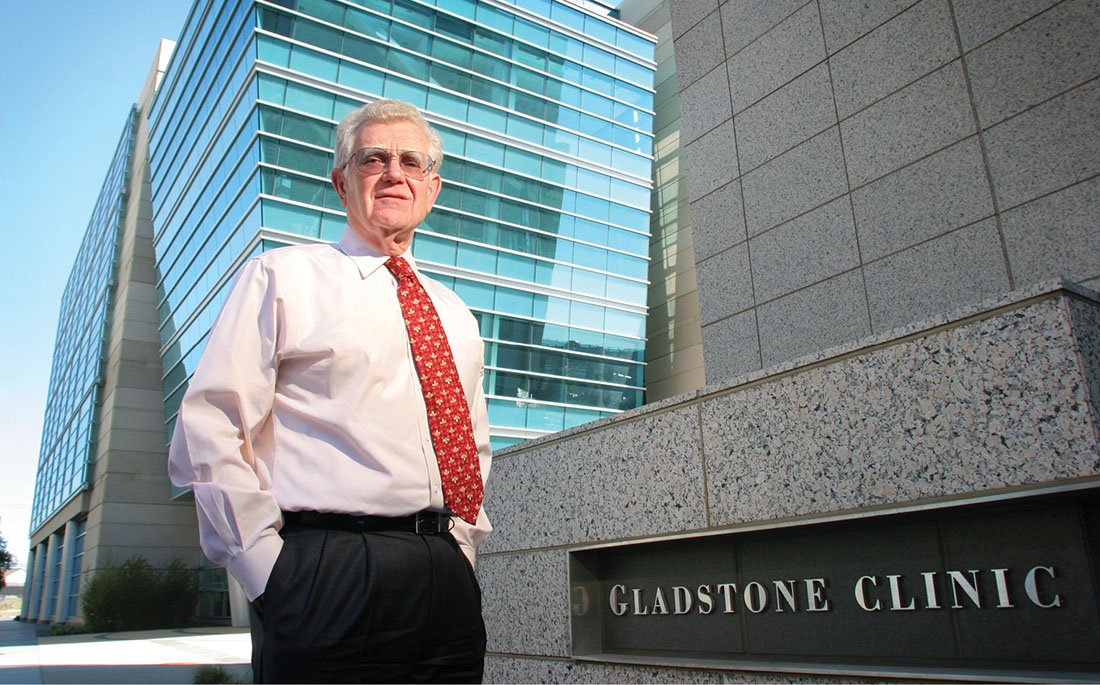Tweaking Alzheimer’s Gene

During the next 15 years, as the baby boomer generation ages, the number of people affected by Alzheimer’s disease is expected to double. But there is new hope if promising research by Robert Mahley bears fruit. Mahley is senior investigator and founder of the Gladstone Institutes, a nonprofit biomedical-research organization affiliated with the University of California, San Francisco.
Mahley, also a professor of pathology and medicine at UCSF, stepped down as president of the Gladstone Institutes in 2010 to concentrate on research. He recently received a $2.5 million grant from the Wellcome Trust to fast-track a drug that could neutralize the protein researchers believe is the genetic cause of Alzheimer’s disease—the apolipoprotein E4, or ApoE4.
ApoE4 is a variant of the ApoE protein. Normally, ApoE is involved in repairing nerve cells that have been injured. But nerve cells consider ApoE4 an intruder, attacking it and wreaking havoc on vital cell structures. Mahley and his research team have been working to find a way to mitigate the harmful effects of ApoE4 by changing its structure.
Mahley earned a bachelor’s degree from Maryville College in Maryville, Tenn., before completing an M.D., Ph.D., and then a pathology internship at Vanderbilt. In 1979 he was recruited to lead the newly formed Gladstone Institute of Cardiovascular Disease. He is now internationally recognized for his expertise in heart disease, cholesterol metabolism and, more recently, Alzheimer’s disease.
An ApoE4 fix, he believes, also could play a role in treating multiple sclerosis, traumatic brain injuries, stroke and Parkinson’s disease.
“Alzheimer’s disease is becoming widespread,” he says. “If we don’t spread the net, we may waste another 20 years without having a therapy.”